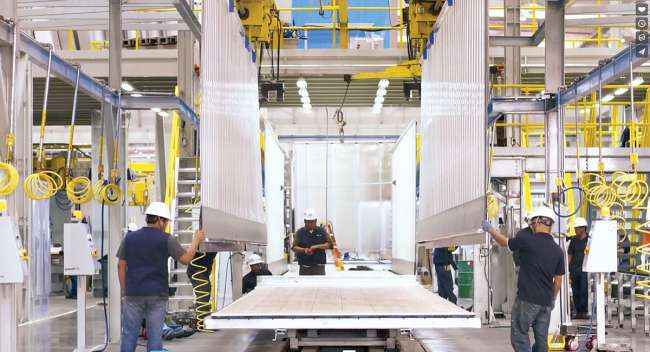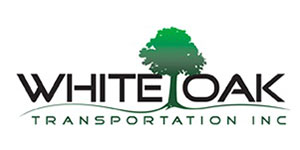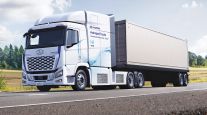Senior Reporter
April Trailer Orders Drop to 10-Month Low; Costs, Cancellations Rise

[Stay on top of transportation news: Get TTNews in your inbox.]
U.S. trailer orders in April were just above 14,000, the lowest volume in 10 months as cancellations increased and backlogs continued to extend into 2022, ACT Research reported.
Preliminary orders reached 14,400, according to ACT, which cited trailer makers’ initial data.
Comparisons this month with year-earlier results are essentially meaningless because April 2020 saw the all-time low in orders, 209, as the coronavirus pandemic raged with 1 million cases being reported and more than 57,000 deaths.

Kenney
“April orders were quiet as we wait for the supply chain and commodity markets to stabilize in contemplation of formally opening 2022 sales,” Sean Kenney, chief sales officer for Hyundai Translead, told Transport Topics.
He would not discuss how many shifts were involved nor the company’s rate of production but said the supply chain is struggling “to supply the strong demand from the industry as a whole.”
“We are sold out on all products through the remainder of 2021,” Kenney said.
Stoughton Trailers recently posted job openings and starting salaries for welders and painters on Twitter.

Giesen
“We are working towards staffing all shifts on all lines,” said David Giesen, Stoughton vice president of sales. “This is the challenge every hiring company in the U.S. is dealing with as finding and keeping available workers continues to be a challenge.”
Giesen said Stoughton expects to see a supply chain that already is pushed to the limit and for those issues to persist through this year.
“It’s not getting better at this point,” he said.. “As a manufacturer it is good to have more demand than capacity, but this is not good for our customers.”
One vendor of asset-tracking technology said there is a supply chain corollary with fork trucks and lift trucks inside the warehouse.

Stanton
“Some of those have a minimum of 16 to 24 weeks lead time on new orders,” said Mark Stanton, general manager of supply chain at PowerFleet. “So it’s not just over the road assets; we are seeing it in many other areas, too.”
Publicly traded PowerFleet recently announced it would supply its LV-500 trailer tracking product on 875 trailers at White Oak Transportation Inc.
White Oak Vice President Ryan Waller said, “As some of our contracted trailers stay at our customers’ sites for extended periods, access to accurate usage information is also critical in allowing us to improve preventative maintenance planning.”
White Oak Transportation, based in Decatur, Ala., provides brokerage, dedicated contract carriage, and truckload carriage.

Stanton said trailer makers are not prepared to deliver on new orders until 2022.
“What that does is add a lot more pressure on those organizations that need those trailers, or chassis and containers, to do more with what they have,” he said.
That may require using technology such as telemetry if they don’t already, or upgrading that technology “to be better, faster” so they can use those assets more effectively and extend their life, he said.
Stanton said fleets are constantly asking how many assets he has, where are they being used and is it enough or does he need to expand.
Meanwhile during Wabash National Corp.’s Q1 earnings call, an analyst pointed out J.B. Hunt recently talked about an increase in its trailer order of 3,000, and that incremental was going to go into their trailer pool.

Yeagy
Wabash CEO Brent Yeagy said during the call that things like that are happening with asset-enabled brokerage operations and that is something Wabash is very keyed into.
“And J.B. Hunt is one of those customers that is acting on the market in a way that aligns with where Wabash National sees the world going and is an extension of our strategy as well,” he said.
J.B. Hunt Transport Services ranks No. 4 on the Transport Topics Top 100 list of the largest for-hire carriers in North America and No. 5 on the TT Top 50 list of the largest logistics companies in North America.

Next-level technologies hold the potential to enhance safety and efficiency in transportation, but it takes a lot of work behind the scenes to advance these ideas from concept to reality. We talk with Christoph Mertz of the Robotics Institute at Carnegie Mellon and Huei Peng of the University of Michigan. Hear a snippet above, and get the full program by going to RoadSigns.TTNews.com.
At the same time, Yeagy said the commercial vehicle industry was in uncharted territory with all-time highs for a number of commodities.
“When it comes to managing the cost realities that we have right now, what I would say that is different is we have literally had this conversation with every customer within Wabash National,” he said. “And it doesn’t matter what product market or which segment you belong with at Wabash, we’re having a conversation with you. That has not always been how Wabash handled it.”
Frank Maly, ACT director of commercial vehicle analysis, said pricing reviews by trailer makers of units on the order board, amid increased component and materials costs, are leading to cancellations.
Looking ahead, ACT has increased trailer forecasts for nearly all categories next year, with dry vans and refrigerated units now projected to reach annual production records.
Want more news? Listen to today's daily briefing below or go here for more info:




